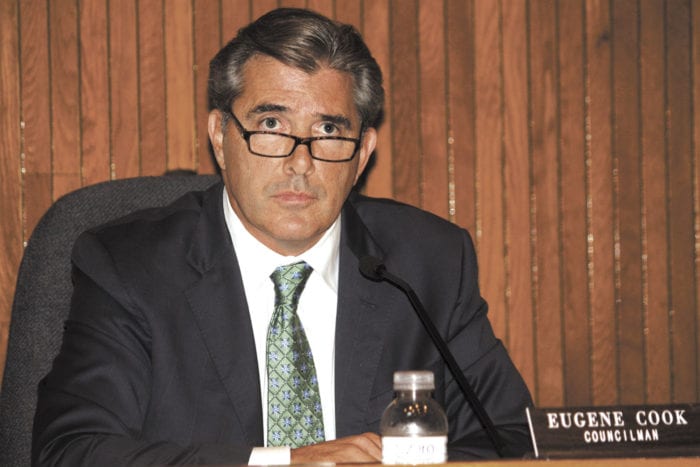Flash flooding leveled much of the tri-state area last Friday, Sept. 29, prompting a state of emergency declaration for Long Island while unleashing damage and halting some services.
The National Weather Service issued a coastal flood watch for Long Island Friday, which remained in effect into the night. Heavy rainfall and intense flooding throughout the region prompted Gov. Kathy Hochul (D) to declare a state of emergency for Long Island, as well as for New York City and portions of the Hudson Valley.
Heavy flooding caused roadway closures at state Route 110 in Huntington between Mill Lane and Prime Avenue near Madison Street at Heckscher State Park, according to a NWS report. In Commack, a stranded motorist on Town Line Road required an emergency service response, the same report indicated.
In an emailed statement, Town of Huntington Supervisor Ed Smyth (R) maintained that much of the town’s infrastructure and services remained undisturbed despite the heavy rainfall.
“Highway Superintendent Andre Sorrentino and the Highway Department, along with our Environmental Waste Management Department, were out in full force with pumps and tree crews clearing and cleaning,” Smyth said. “Our sewage treatment plants received more than double their normal water flow without any reported spillage.”
He added that garbage collection continued as scheduled, though the storm had disrupted and canceled numerous local events. “However, normal government operations continued without interruption. Although there were no significant issues, the town is currently assessing all departments to determine any and all issues relating to the storm.”
Joana Flores, media liaison for the Metropolitan Transportation Authority, indicated that operations along the Long Island Rail Road’s Port Jefferson Branch were largely undeterred.
“Friday’s weather event did not have any impact on MTA infrastructure in the Port Jefferson area or to Port Jefferson train service,” Flores said. “With the exception of one train that was momentarily delayed due to a non-weather-related matter, the Port Jefferson Branch operated on or close to schedule.”
“Crews did perform periodic patrols of the Port Jefferson Branch to monitor conditions of the infrastructure,” she added.
Electrical infrastructure had similarly avoided major damages, according to Jeremy Walsh, a spokesperson for PSEG Long Island. “Friday’s flooding did not impact the electric infrastructure,” he said in an email. “Overall, the system performed well. While we did experience scattered outage activity, it was mainly as a result of the heavy rains and gusty conditions impacting trees and tree limbs, not flood damage.”
Given projections for more frequent and intense storm events over the coming years, Walsh added that the utility company is continuing efforts toward mitigating the associated risks to the electrical grid.
“PSEG Long Island has been storm-hardening the electric grid since 2014, including elevating equipment at some substations to protect against flooding, and this has helped reduce the impact of severe weather events,” he noted. “We continue to storm-harden the infrastructure using the best projections for future flooding and wind conditions that are available to us.”
The storm’s impacts were not limited to public infrastructure, however. The New York State Department of Environmental Conservation temporarily closed much of the North Shore to shellfishing due to “extremely heavy rainfall and extraordinary amounts of stormwater runoff and localized street flooding … which may result in conditions causing shellfish to be hazardous for use as food,” a NYSDEC report said.
At a press conference the following day, Sept. 30, Hochul announced that there had been no recorded fatalities due to the flooding, thanking the public for heeding emergency warnings.
“What had been described by myself as a potentially life-threatening event ended up being a time when people listened, they reacted properly, they took precautions and no lives were lost,” the governor said.

















